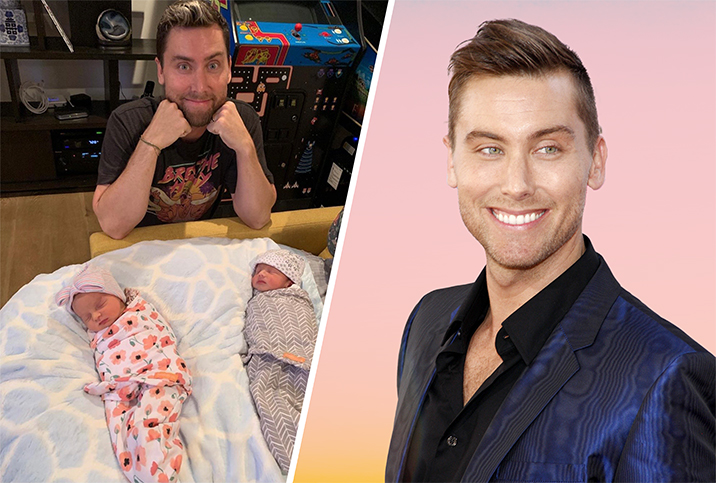How Surrogacy Can Work for You

There are a bevy of reasons someone may struggle to conceive a child naturally, including polycystic ovary syndrome, endometriosis, sexually transmitted infections or simply age and lifestyle factors, to name a few.
One option to consider, if you have the means, is to have a surrogate carry the baby for you.
A surrogate's perspective
Chelsea Kimball, a doula at Birth Fort Worth, has birthed two surrogate children. She described surrogacy as "both really straightforward and entirely complicated."
"It's a birthing person choosing to carry a child who isn't theirs for someone who couldn't themselves," Kimball said. "This can be for a plethora of reasons on both sides."
For Kimball, the reason was simple: She wanted to help people who couldn't have kids of their own.
However, not just anyone can become a surrogate. In Texas, where Kimball lives, requirements to be a surrogate include being a nonsmoker, not being on any medications, being within a certain BMI range and having birthed a child before with no complications. Fortunately for Kimball, she met the qualifications.
"When my husband was in the military, I met quite a few people who couldn't have children but wanted them, and it really broke my heart," Kimball said. "It sat with me for a long time. So, when we moved to Texas, I explained the process to my husband and told him I just really felt called to do it. He was very supportive and I put in my application soon thereafter."
Matching IPs with a surrogate
Many intended parents (IPs) find surrogates through surrogacy agencies, who put together well-fitting matches. Kimball applied and became a surrogate through an agency called Surrogate Solutions.
"They use what I compare to 'dating profiles' to match people together based on personalities and preferences," Kimball said. "For example, I'm pro-choice and wouldn't carry more than two babies, so if an embryo split and I ended up pregnant with triplets, I'd want a 'selective reduction.' That's not how everyone feels, but my IPs did, so we matched there."
According to a 2020 article published in the U.S. News & World Report, the average surrogacy can cost between $100,000 to $150,000.
After IPs get the chance to look through potential matches, a case manager facilitates and moderates a three-way call with the IPs and their potential surrogate. It's important for all parties to be comfortable with each other to ensure a smooth process.
In a surrogacy, the embryo the surrogate mother carries is generally implanted via in vitro fertilization, which ensures the parents have genetic links to their child.
"We both had separate lawyers to look over our contracts and make negotiations for us, but in my case, we basically agreed on everything," Kimball said.
Kimball and her IPs were such a good match, in fact, that she birthed a second baby for them two years later. In a surrogacy, the embryo the surrogate mother carries is generally implanted via in vitro fertilization, which ensures the parents have genetic links to their child.
"I did not know my IPs before we were connected through the agency, but after I gave birth to their daughter in 2016, we kept in touch and ended up very close," Kimball said. "We had briefly discussed a sibling journey in the future. When they called me two years later and said they wanted to have another baby, I was thrilled."
Bonding with your baby
Surrogacy and adoption have one big thing in common: Intended parents and adoptive parents have the occasionally difficult task of forming a bond with a baby they didn't birth. Birthing parents often describe certain moments of pregnancy—such as feeling their babies kick—as crucial bonding moments. These are moments IPs and adoptive parents simply don't get the chance to have.
Shannon, an adoptive parent from Louisiana, struggled with infertility and decided to go the route of adoption to become a parent. When she met her adopted baby, things did not immediately go smoothly.
"Bonding with a baby you did not give birth to is very scary," Shannon said. "The first time I held her, she would not stop crying. I gave her to her birth mom and she stopped immediately. I was so nervous, and maybe she could feel that. I prayed that night, as I had many times before, and the next day was much better."
Shannon said "nesting," or readying the home and nursery for the baby's arrival, helped her prepare to form a bond with her baby beforehand. She did so with personal items to help ease the transition home with her newborn.
"I purchased lots of parenting and baby books to read," Shannon said. "Her baby room was perfect. I borrowed a baby bed from my sister. I refinished a dresser that belonged to my grandmother."
Chosen families are valid
Infertility is a very common struggle, and both surrogacy and adoption are valid choices to become parents. It's important to remember your own family is just as real and valid as any family that is able to conceive naturally.
"The courage and strength her birth mom had to make the decision to place her baby up for adoption completed my life," Shannon said.














